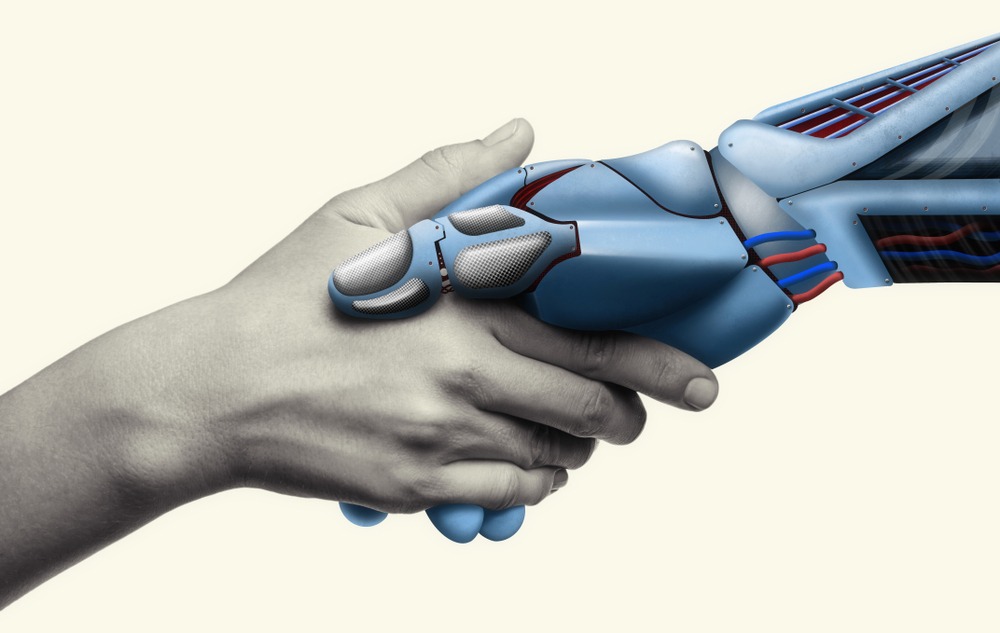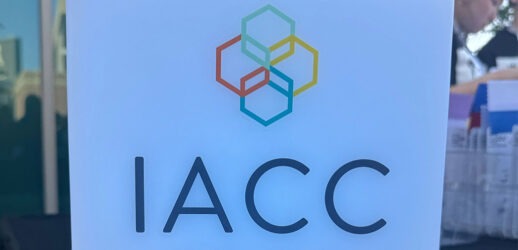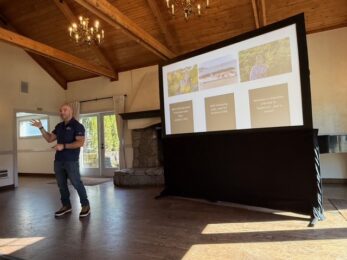AI is here. It’s not a separate technology but a discipline and you’ll find it baked into an escalating amount of new and old tools. The genie is out of the bottle and it’s only going to be more pervasive and invisible as well. What does that mean for the meetings industry? It might be our salvation.
While there are books, movies and endless lectures on the potential dystopian outcomes of wholesale adoption of artificial intelligence, I like to take the optimistic viewpoint. Maybe because I was raised on Star Trek, but I see AI as our companion and a bridge to a more human future. That might seem like an oxymoron, something artificial enabling us to be more human… but what is more human than the creation of tools? Tools are what separate us from the rest of the animal kingdom and with them, we’ve advanced to discover our place in the universe. Tools enable us to come together and work on something greater than ourselves, as do meetings.
Time and Resources
I see the tools of AI giving the meeting planner something they’ve never had in any real abundance before, time and resources. The mundane tasks like creating first drafts of agendas, booking travel accommodations, modifying headshots and the endless list of unfulfilling boxes to check can be handled through AI without knowledge of coding or degrees in development.
Our designed experiences can be richer with AI tools in the mix enabling attendees to meet who they were meant to meet, suggesting the best sessions to attend, and answering questions instantly. This adds up to less distractions, more focus and more mindfulness. We aren’t more human when we have to wait in long lines or suffer when our needs are not anticipated. AI can solve these common problems and much more.
Read More: Adding AI to Your Next Meeting
The post-event work that planners look forward to the least can now be sources of empowerment as AI-derived data can help tell more nuanced stories. Meetings have never had their full potential realized in the business world because it’s always been difficult to unpack experience ROI. With discriminative deep learning models, passive data collection of participants can reveal hidden truths about the experiences we design. Generative AI has the ability to reveal different perspectives on almost all aspects of your event. Asking AI how a neurodivergent individual might feel about a theater in the round or a nightclub venue for your networking event, could reveal jumping-off points for important discussions about inclusion.
The health and well-being of the planner themselves is something the industry has been pointing at for years now without a silver bullet emerging as the solution. Maybe an equilibrium can come through the adoption of AI? With time saved, ambiguity of the event’s results made clearer, and an increased sense of belonging amongst meeting participants, would the planner not be enriched? The business of bringing people together is as complicated as any profession in the world. Isn’t it about time technology lessened this burden as opposed to adding more to it?
Blurring of Humanity and Technology
On a protracted scale (and with exponentially increasing innovation likely sooner than we think), AI could be revolutionary for the growth and maturity of the entire hospitality and experiences industries. With an overall decrease in time spent in repetitive tasks, what remains are the soft or “human” skills. Coming together and having experiential emotional exchanges could gain untold traction in a world with more personalization, empirical return and inclusionary design. As many industries predict they could fold into the ominous gravity of the technology industry, could it actually go the other way for the world of experience design?
Read More: How Meeting Profs Can Find the Right Event Tech
With no-code development platforms and the accessibility of on-demand generation of complex software, the next generation might be coding as easily as we text and send voice commands today. What isn’t threatened by large language processing and generation’s ability to serve answers instantaneously is the human desire to both come together and be changed through experiences. There isn’t an AI that will replace those innate needs. What will change is the relationship between planners and attendees.
The demands of attendees, who also have access to generative AI, are going to change. Content will be easier to come by than ever before. It will take a backseat to shared experiences. With on-demand, contextualized and more potent content available by just asking questions in a natural way, lectures and other typical meeting delivery mechanisms will be tolerated less. Planners need to think of experiences first with the fostering of connecting, participating and the energy of a shared space as the priority of our designs. Planners need to invest heavily in a feedback loop to take the temperature of a shifting attendance base as their tastes change in response to AI adoption. Deeper listening through AI-powered surveys and attendee facial analysis could be a game-changer.
AI is improving lives every day, giving us more time to pursue our passions while having a better understanding of others’ perspectives. At the beginning of this new technological evolution, it’s more important than ever to hold on to our humanity and to remember that tools are mirrors of their makers. We may just be entering a golden age of gatherings.
—
 Nick Borelli is the director of marketing for Zenus, the leader in ethical facial analytics. He has spent over two decades at the intersection of marketing, events and tech. He is also the instructor for PCMA’s “Enhancing Events with AI” Certificate Course. You can see Nick and the Zenus team next as they deploy their AI technologies at the CEMA Summit and IMEX America.
Nick Borelli is the director of marketing for Zenus, the leader in ethical facial analytics. He has spent over two decades at the intersection of marketing, events and tech. He is also the instructor for PCMA’s “Enhancing Events with AI” Certificate Course. You can see Nick and the Zenus team next as they deploy their AI technologies at the CEMA Summit and IMEX America.




